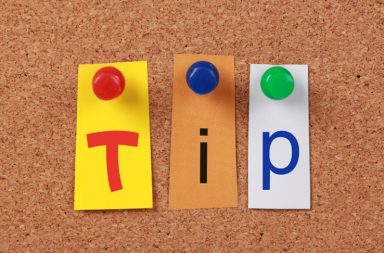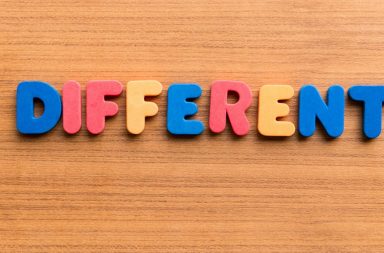As of January 2, 2021, there were more than 84.26 million confirmed COVID-19 cases worldwide. The United States tops the list, with over 20.20 million confirmed cases. That’s almost twice the number of confirmed cases in India, which seconds the list.
With that said, current evidence suggests that SARS-CoV-2 can transfer by contact. Studies found that its transmission can occur either by direct or indirect contact. It can also spread during close contact with people infected by the virus.
However, proper cleaning and disinfecting can mitigate its spread. For this reason, disinfecting services have become even more crucial than ever. This is especially true for businesses and facilities wherein a lot of people come and go.
How exactly can professional disinfecting help reduce the spread of COVID, though? Are there any specific products known to kill SARS-CoV-2?
We’ll answer all these questions below, so be sure to read on!
It’s in the Guidelines
The CDC and the EPA created a guide for “Reopening America.” It’s a long list covering cleaning and disinfecting homes and businesses. It includes guidelines for the proper disinfection of buildings and all their contents.
Even if they are only “guidelines,” they aim to help US consumers stay safe from COVID.
More than that, many US states now mandate a COVID-19 prevention plan. Part of this requirement is to follow the CDC/EPA guidance for cleaning and disinfecting.
California is one state wherein businesses must have a COVID-19 prevention plan. The same goes for Alaska, Arizona, Illinois, Indiana, Kentucky, and several other states. Other states, such as Colorado and Florida, only “recommend” businesses to have such a plan.
Either way, employers have a federal obligation to provide workers a safe workplace. That should be a good enough reason for you to follow the CDC/EPA guidelines.
You should do the same at home to lower your family’s risk of getting the virus.
Proper Disinfection Can Help Reduce Coronavirus Populations
Did you know that dirt, debris, or organic materials can cut a disinfectant’s efficacy? Scientists say that poor surface cleaning compromises the disinfection process. This means that if you disinfect a filthy surface, the disinfectant may not be able to kill as many germs as it could.
For this reason, you must properly clean surfaces before applying disinfectants on them. Cleaning itself helps in the physical removal of dirt, grime, and organic materials. While it won’t kill pathogens, it can help disinfectants do a better job.
Professional disinfecting services always follow this protocol of cleaning before disinfecting. They also use EPA-registered disinfectants for coronavirus. These are the chemicals expected by the EPA to kill the coronavirus SARS-CoV-2 so long as used as directed.
On that note, it’s a smart idea to ask your office disinfection service about the products they use. Then, cross-check the names with the EPA’s List N Tool. These are the only products that have demonstrated efficacy against SARS-CoV-2.
COVID Disinfecting Services May Help Cut New Strain Transmission
Health experts believe that the mutant B.1.1.7. COVID-19 strain has a 50% higher transmission rate. This means that it’s more contagious than the strain thought to have come from Wuhan, China. What’s more, the CDC says that B.1.1.7 is now circulating in most states.
However, it’s still unknown if the mutated coronavirus is more dangerous.
Also, note that some virus strains boast mutation rates of anywhere between 1,000 and 10,000. “Mutation rate” is the frequency at which a single organism mutates or creates new strains. So, this means that some viruses can mutate up to 10,000 times within their life cycle.
The thing is, researchers have already found over 12,000 SARS-CoV-2 genome mutations. This means that the B.1.1.7 strain isn’t the only emerging COVID-19 threat.
Regardless, that’s all the more reason to invest in disinfectant cleaning services. Just remember to choose a provider that uses List N products. These chemicals have demonstrated efficacy against other coronaviruses, similar to COVID-19.
Frequent Disinfection Helps Lessen Surface Transfer of Pathogens
Early lab tests found the SARS-CoV-2 virus to stay active for up to six days on plastic and stainless steel. A more recent study found that the COVID-19 virus can survive on various surfaces for up to 28 days, at 68 °F, in the dark. Such surfaces include phone screens, stainless steel, and even banknotes.
While test results vary, they all point to the same thing: the virus can transfer surfaces.
The thing is, the average US employee uses at least two work devices. Many others use more than that, including smartphones, tablets, laptops, and desktops. So, the risk of spread is higher in workplaces with bring-your-own-device (BYOD) policies.
All these should be enough to prompt you to get frequent work and home disinfection services. This is especially vital for buildings that allow the entry of more people and equipment. The higher the foot traffic, the more often you should have your facility (or home) disinfected.
Disinfecting Services Can Help Mitigate Other Pathogens
Speaking of cellphones, did you know that they can be at least 10 times dirtier than toilet seats? Aside from viruses, they may also harbor the superbug MRSA, as well as strep and E. coli.
MRSA stands for “methicillin-resistant Staphylococcus aureus.” This bacteria can survive for weeks on surfaces like furniture and sports equipment. It can spread through touch and cause infections by entering the skin through a scrape or cut.
“Strep,” on the other hand, refers to the bacterial group called “Streptococcus.” These germs are behind Streptococcal infections, such as mild throat infections and pneumonia. As with MRSA, they can spread through direct contact.
- coli illnesses, like diarrhea, often occur by consuming contaminated food or water. Still, E. coli can get on your hands when you touch a contaminated surface. From here, you can contract an illness if you then touch your mouth.
There’s still some good news, though: many products included in the EPA’s List N are also in the “H” list. H-listed items are those found to be effective against MRSA and E. coli. Ethyl alcohol (60% to 95%) and isopropyl alcohol (isopropanol) can also kill strep.
In this way, COVID disinfecting services may also help lower your odds for other diseases.
Keep Safe from COVID-19 With Regular Disinfection
Cleaning and disinfecting services have always been vital, even before the COVID pandemic. However, the novel coronavirus’s emergence has made them even more critical. With their help, you can lower your business’ and loved ones’ health and safety risks.
Looking for more informative business guides like this? Then please feel free to stay and check out our other posts!


